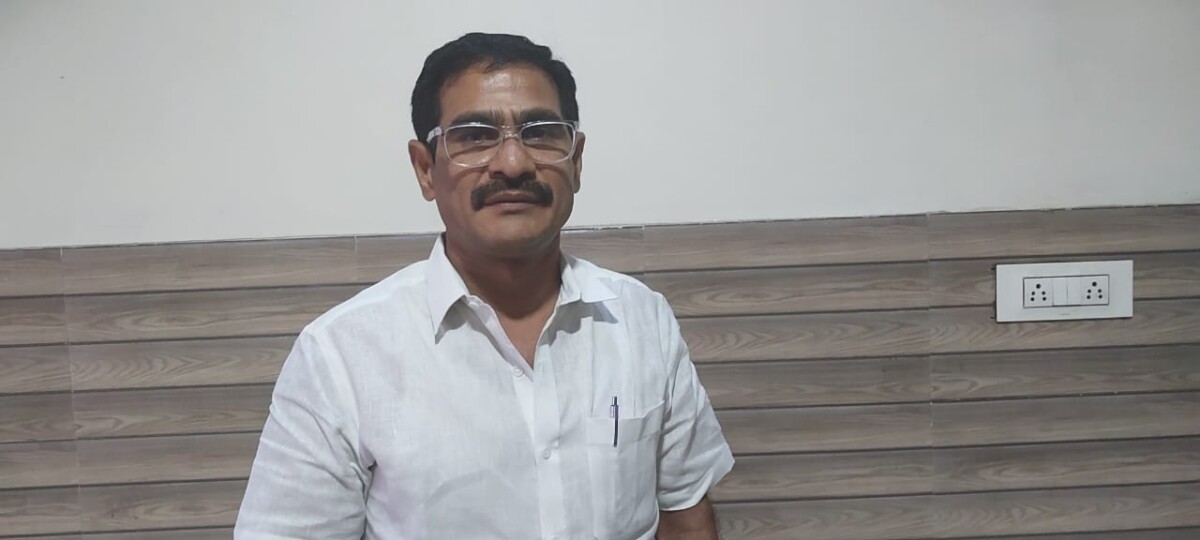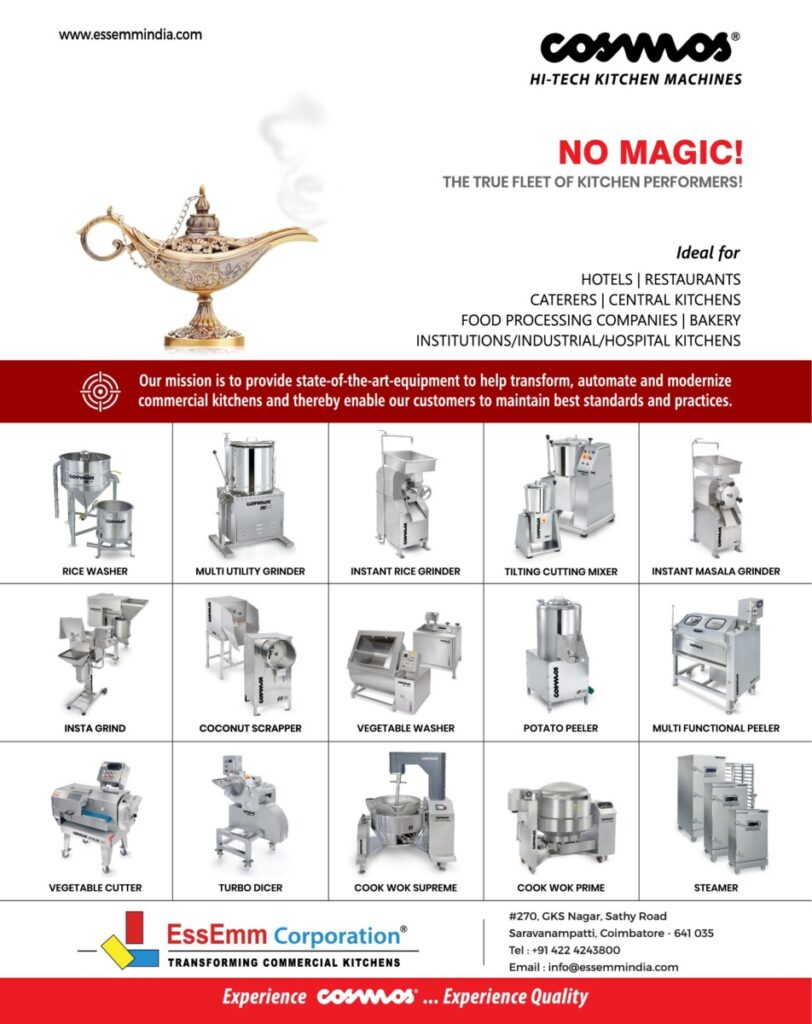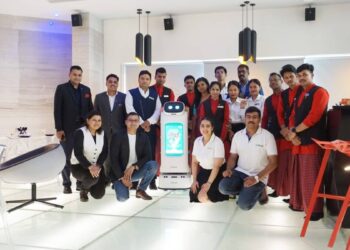-Tulasi (cbedit@imaws.org)
Procuring workforce and bearing the maintenance cost of the establishment remains the major challenge for the hotel industry. Being a service-oriented industry associated with food and hospitality, which are the basic needs of any human being, there is a high demand for cleanliness and hygiene too. The workforce crisis is very intense in mid-size restaurants, mainly due to the financial constraints faced by the owners.
 A majority of the restaurants and hotels, except those catering to the needs of the elite and rich, face problem in hiring and retention of committed workforce, says L. Ashok Kumar, Member of the Andhra Pradesh Hotel Association and owner of RK Restaurant, Rajamahendravaram.
A majority of the restaurants and hotels, except those catering to the needs of the elite and rich, face problem in hiring and retention of committed workforce, says L. Ashok Kumar, Member of the Andhra Pradesh Hotel Association and owner of RK Restaurant, Rajamahendravaram.
Ashok Kumar also blamed the governments for offering freebies and making the working class more lazy. “In a family of four, if nearly three of them can get the benefits of any of the various freebie schemes, why would they prefer to work,” he asked.
Further, he explained how the shortage of workforce dilutes the quality of work by the existing under-skilled workers. “We are in a need for workforce and the chefs, servers, etc. take advantage of this and we are forced to employ them even when the workers do not have necessary knowledge needed about their area of employment.”
“We have many problems. Usually, employers interview the employees before recruiting but in our industry, employees interview the employers. They ask us when would the salaries be given, how much advance would be given, the size of our business, what would be the working hours, will accommodation be provided, etc. It is only after the worker is completely satisfied that he shows interest in joining the hotel to provide his services.”
“In fact, we do not ask the worker about his skills but have to be satisfied with whatever he knows. Workers need not pursue any course to get eligibility to work in a hotel. We are in grave need of workers so much so that we just induct anybody. There is a lot of uncertainty associated with the workers and hence, we would not enqire about the worker’s details at least till 3-4 days of joining. We do not have any guarantee of the worker’s consistency. He might not turn up the second day itself. So we wait to check if he would continue to work till a couple of days and then ask him about his details.”
“This is one industry which does not demand a highly skilled worker. Yet we provide food, accommodation, security and even some salary but they do not stick to us. This situation is mainly due to the easy way they can earn money. On one hand, the governments are implementing several schemes which guarantee freebies and on the other, their living conditions have also improved. They are able to earn more than what they used to earlier. The workers view life on a day-to-day basis. They do not have big ambitions. They are happy if they are able to pass away this day, have the daily dose of liquor at the end of the day. If not in our hotel, they can earn their daily wages in some other place and be done with their day’s earning. They are not worried about their savings for any lean day. This attitude aggravates our problem,” he explained.
In addition to the government, workers also get free food from individuals and charitable organisations which are into poor feeding. Once their need for food is over, they find no big reason to go and work at least for that day, said Ashok Kumar.
“The hotel industry is in so much need of workers that we employ them without any skills. The workers do not follow the eight-hour work rule. They enter the kitchen one hour late, take long breaks in between and also leave the workplace one hour early, citing some urgency. Earlier, there used to be some criteria for deciding the workers’ seniority but now, all these lines have become blurred.”
“Despite bearing the expenses for providing food and accommodation, along with medical reimbursement and monthly salary, the workers fail to have consistency. Majority of our workers are from Odisha, West Bengal and Bihar. The worker need not spend much from his earnings as we take care of their food and shelter. There is no need of literacy or any extraordinary skill to work in a hotel. Yet we are facing labour problem,” he revealed.
 Ashok Kumar said that there has been a change in the earnings of the workers, compared to the previous days. Earlier, they used to earn just Rs 300-400 which was not sufficient to support a family but now, they are earning Rs 600-700 per day, which leaves them with a surplus. Moreover, the workers need not slog for months or years to get a promotion. From a pay of Rs 600, workers can scale up to Rs 1,000 in within just six months. The owners of hotels themselves provide training to the workforce and impart skills but there is no guarantee that the workers would stick to the same owner for a lifetime. The workers easily leave us and go for work elsewhere, he informed.
Ashok Kumar said that there has been a change in the earnings of the workers, compared to the previous days. Earlier, they used to earn just Rs 300-400 which was not sufficient to support a family but now, they are earning Rs 600-700 per day, which leaves them with a surplus. Moreover, the workers need not slog for months or years to get a promotion. From a pay of Rs 600, workers can scale up to Rs 1,000 in within just six months. The owners of hotels themselves provide training to the workforce and impart skills but there is no guarantee that the workers would stick to the same owner for a lifetime. The workers easily leave us and go for work elsewhere, he informed.
There is a difference between the hotel and catering industry. Hotels have to survive throughout the year but caterers business is mostly seasonal, which means it is temporary work. Hence, caterers would also not hesitate to shell out more bucks for that limited period, and earn the satisfaction of the customer. “We also do catering service but running a hotel is much more difficult than catering. A hotel owner has to maintain good public relations and affordable pricing to ensure permanent customers to his hotel and simultaneously provide a conducive atmosphere for the workers to encourage them continue to work with us. Despite fluctuation in my income, the hotel owner needs to bear the standard expenses.”
“To overcome the labour crisis, we even thought of providing the workers with some insurance amount but even then, they are not sticking to us. It is like the hotelier is feeling the need for workers while the workers are not feeling the need to earn. The disparity in the requirement of work is leading to all the problems. We are struggling to retain the workforce.”
However, A. Subrahmanyam of Sundaram Caterers, Rajamahendravaram, said that they are neither worried in procuring the raw material or human resources for their work. “The problem is with the customers. They are more focused on cheaper services and are ready to compromise on the quality. Sundaram Catering is known for providing quality services but when we ask for more payment, the customer begins to see for others who can provide the food and service at a much cheaper price.”
“Customers in towns are more worried about the money and would not like to spend more even if they are assured of quality. Basically, many of the customers want to save money rather than ask for quality services.”
Subrahmanyam said that they have no problem in buying the vegetables, dal and oil, even if their prices are high or in procuring the workforce, even during the busy season. “Our entire family is into catering business. So, we never are worried about shortage of labour too. Somebody from our family would chip in and take up the job lying unattended and the problem is solved.”
 SK Vali of SDR Caterers, Rajamahendravaram, also echoed the same feelings. There is absolutely no problem in providing the services but the customers are not prompt in paying the bills.
SK Vali of SDR Caterers, Rajamahendravaram, also echoed the same feelings. There is absolutely no problem in providing the services but the customers are not prompt in paying the bills.
“We can manage with the dals, oil and other ingredients. Mobilising the workforce is also not a big problem as all my family members help each other and do their bit. But, the customer causes all the trouble. They do not recognize our services and delays the payment.
“Due to the delay in payment, we have to keep doing rounds of the customers. Once the function is over, the customer is in a safe zone and they are less worried about our problems. This makes our situation more pathetic. Reminding the customer about our payment is a very delicate issue and this leads to uncomfortable situations and at times, unwarranted animosity with them,” he added.
Predictions on 2024:
Speaking about the challenges getting poised for the caterers, Vamshi Kadiyala, Cheif marketing manager
Sri Guru sai caterers who is a second generation business owners, says, “2024 would be a challeging year for the caterers. As far as our organization is concerned, not just this year, but every year we take it as a challenge and an opportunity to learn from our past mistakes. We had always tried to listening to the both positive and negative feedbacks from our customers. Family caterers like us have unique ways of approaching the business. For example, my father started this and he had laid a very good foundation for our business, It is always a big responsibility for second generation like me to led this.” Guru Sai caterers is known for trying innovative things part of the catering. “We always strive to do some creative marketing and activities through social media. Even though I am still in the learning stage I am sure i will get a good brand image for our caterer very soon.”, he said.
 Lastly speaking on the suggetions Vamshi advises the young caterers would be to maintain quality, quantity and hospitality in even manner. “Our industry is very competitive these days and we can see many catering boards hanging on every next streets, just we need to remember three things those would be quality , quantity , hospitality when ever you excell in theese three aspects there is no competition for you.”, he concluded
Lastly speaking on the suggetions Vamshi advises the young caterers would be to maintain quality, quantity and hospitality in even manner. “Our industry is very competitive these days and we can see many catering boards hanging on every next streets, just we need to remember three things those would be quality , quantity , hospitality when ever you excell in theese three aspects there is no competition for you.”, he concluded
THIS ARTICLE IS POWERED BY








